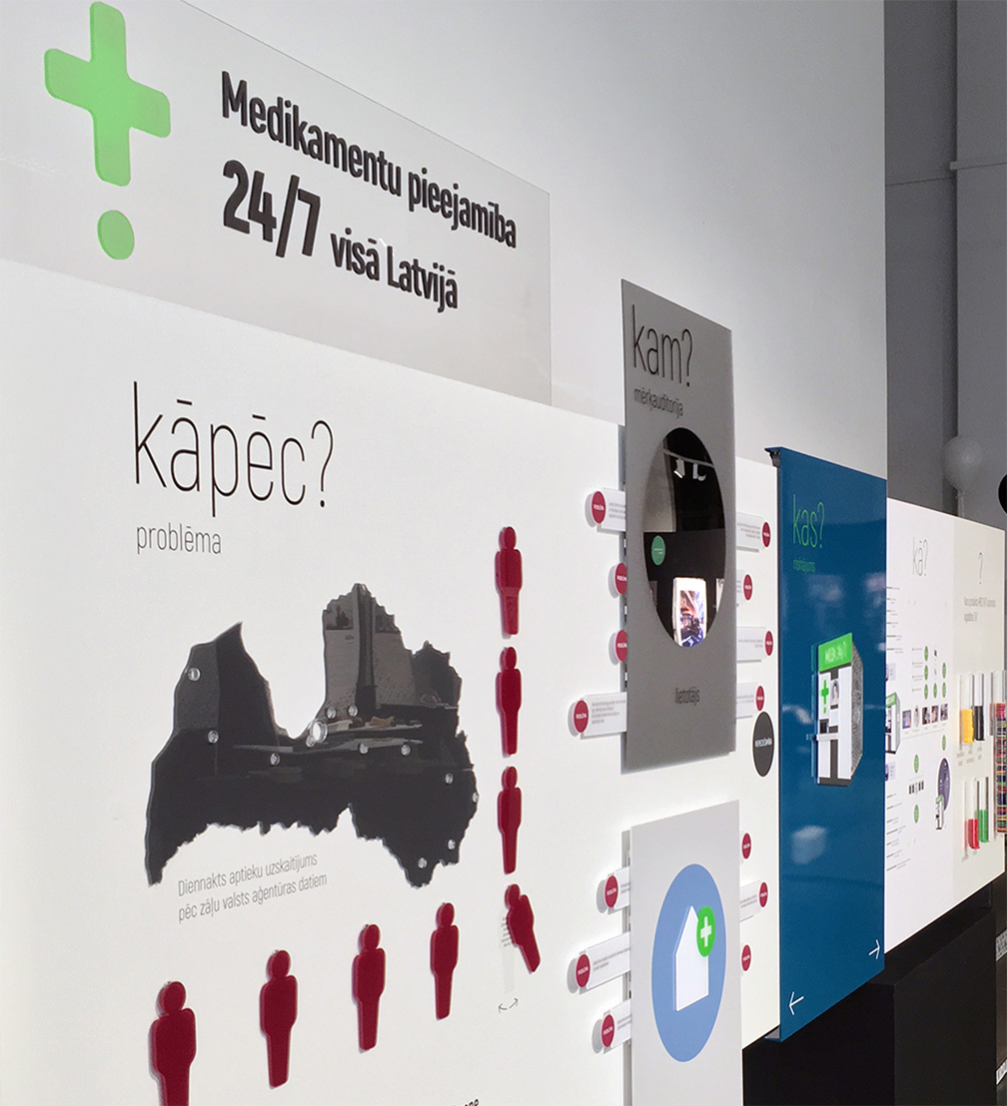
The Bachelor thesis project for the Art Academy of Latvia by Līva Drīliņa — a project in service design «Medicine dispenser 24/7» — is a modern and socially responsible design solution. It is intended to provide prescription and non–prescription drugs, as well as pharmacist’s advice around–the–clock in various places in Latvia.
So far, in the Art Academy of Latvia (AAL) Graduates Days were presented only a few service design projects, that were completed during the Master’s studies. In 2010, Kristaps Grundšteins presented diploma work «Sālsūdens projekts», (Saltwater project) and Jete Gudeta in 2014 came up with the business development map for new businesses «Darīt domu» (Make the thought). Līva Drīliņa this year demonstrates that service design is exciting also for Bachelor programme students. Talking about this area of design, Līva explains that the essence of the service is the way user’s experience is linked with the service provider’s offer. She compares service designer’s work to a bridge that provides an equally useful, effective and beneficial solution for both parties. In the ecosystem of Latvian design that is still a very new and almost unexplored area, so this young designers’ initiative is worthy of a particular attention.
The idea of the project in service design was developed gradually and was implemented in cooperation with the diploma work supervisor Aija Freimane. «It all began with observations in the pharmacy. I noticed that people are embarrassed to purchase sensitive items or specific medical products, and decided to study this issue more closely. First, I spoke to friends, relatives and acquaintances, and most of them admitted that they have encountered similar situations. I continued research by conducting interviews in the pharmacies. I found out the opinions of pharmacists, including staff in homeopathic and night pharmacies, and almost all respondents admitted that there is such a problem. The staff also pointed out that the current solutions — such as glass partitions between the tills or electronic queue numbers — don’t work,» the author of the study comments on the research process.
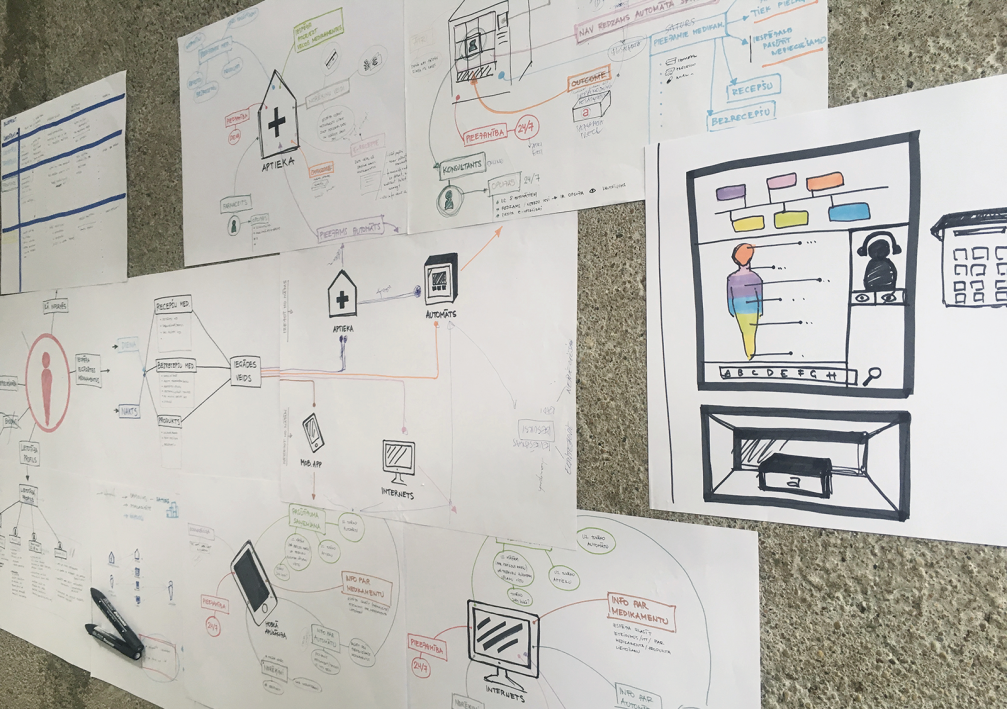
By studying users’ behaviour in pharmacies, Līva came on to a bigger problem related to the lack of medicines and availability of pharmaceutical products during the late hours. Currently, in Latvia, there are only 22 pharmacies that are open around–the–clock, and almost half of them are in Riga. Maintenance of around–the–clock pharmacies is unprofitable, and the current pharmacy network is unable to ensure availability of the medicines across the country. The concept of the automated medicine dispenser «MED 24/7» developed by Līva intends to provide medicines for Latvian residents at any time of the day, as well as to offer remote pharmacist’s advice, possibility of dispensing of the old medicines and purchasing sensitive items without feeling embarrassed. The author points out that by this solution the service becomes more user-friendly and accessible, while service providers will be able to run it with fewer resources.
Flexibility in the formulation of problems, focus on users’ needs, as well as the careful research process indicates the application of the design thinking method. In «MED 24/7» project Līva emphasises that, in addition to the user–oriented design guidelines, particularly important in the project development process was «GIGA Mapping» method (Birger Sevaldson, 2009) — this mapping principle has allowed to process and structure the research material efficiently, making it more understandable for the receiver.
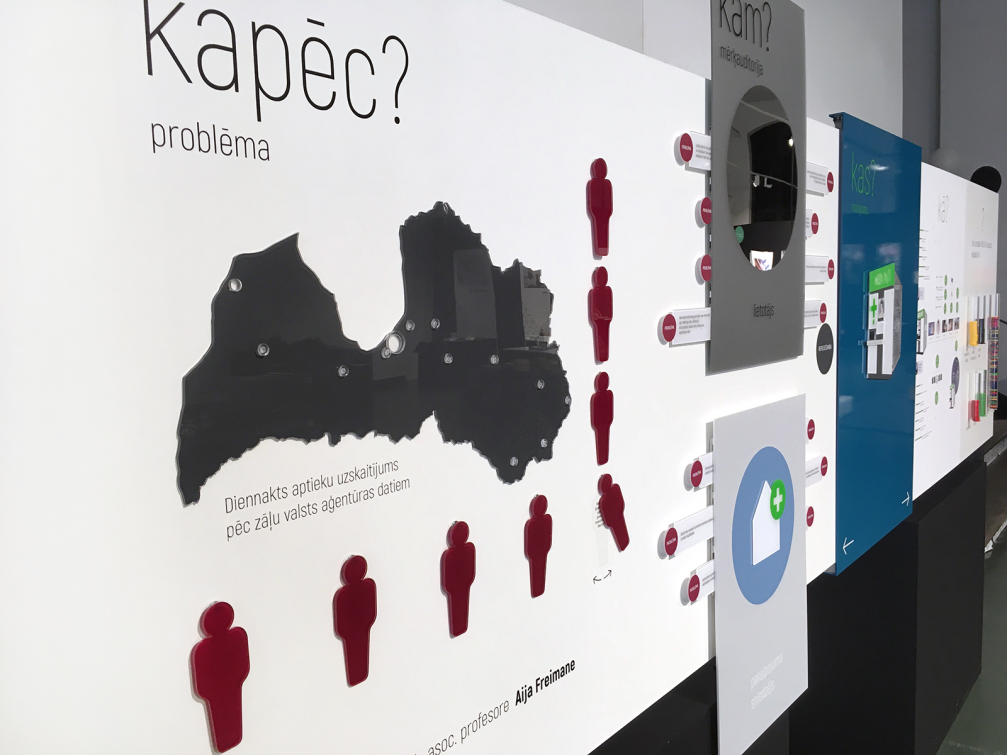
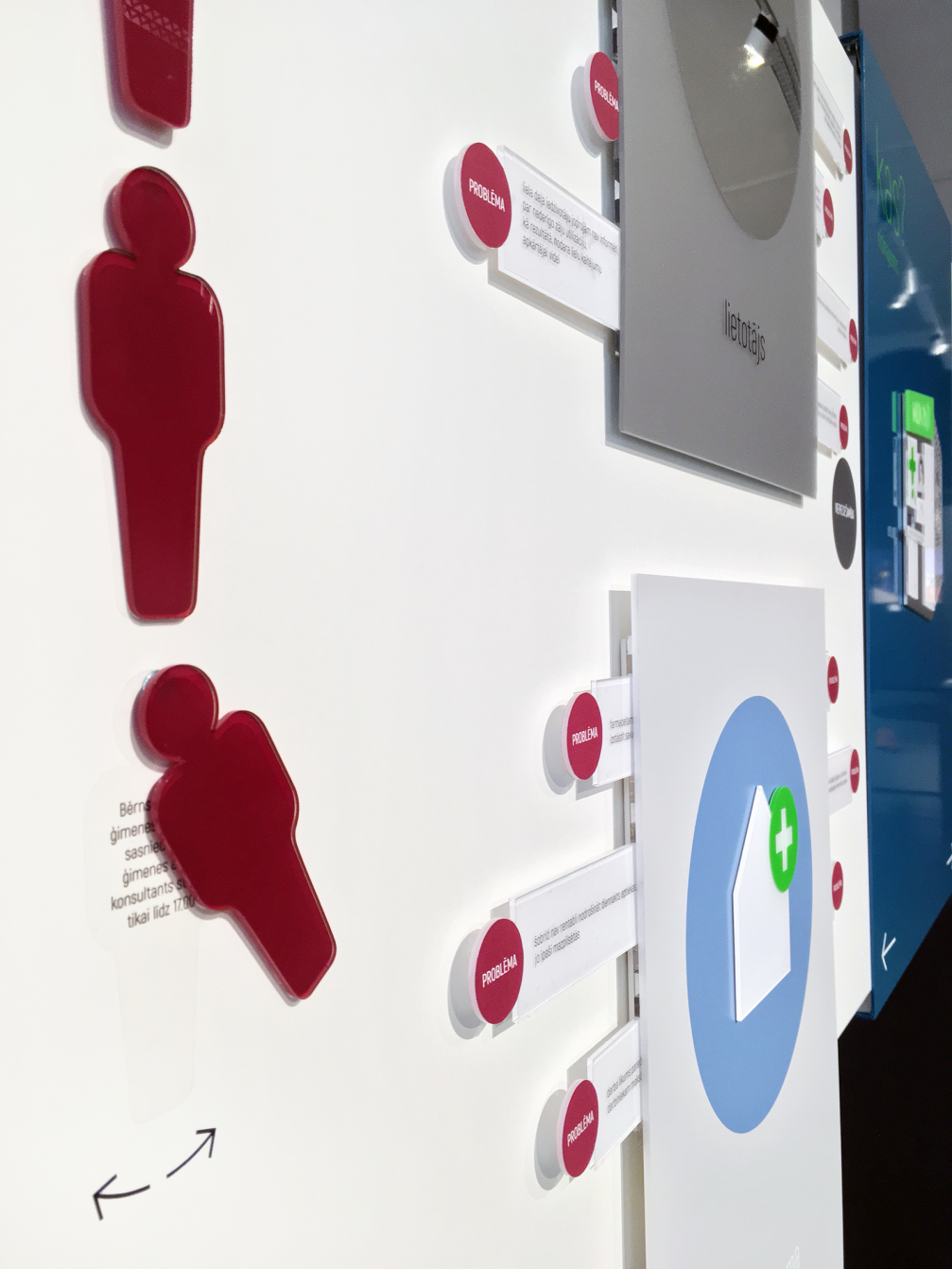
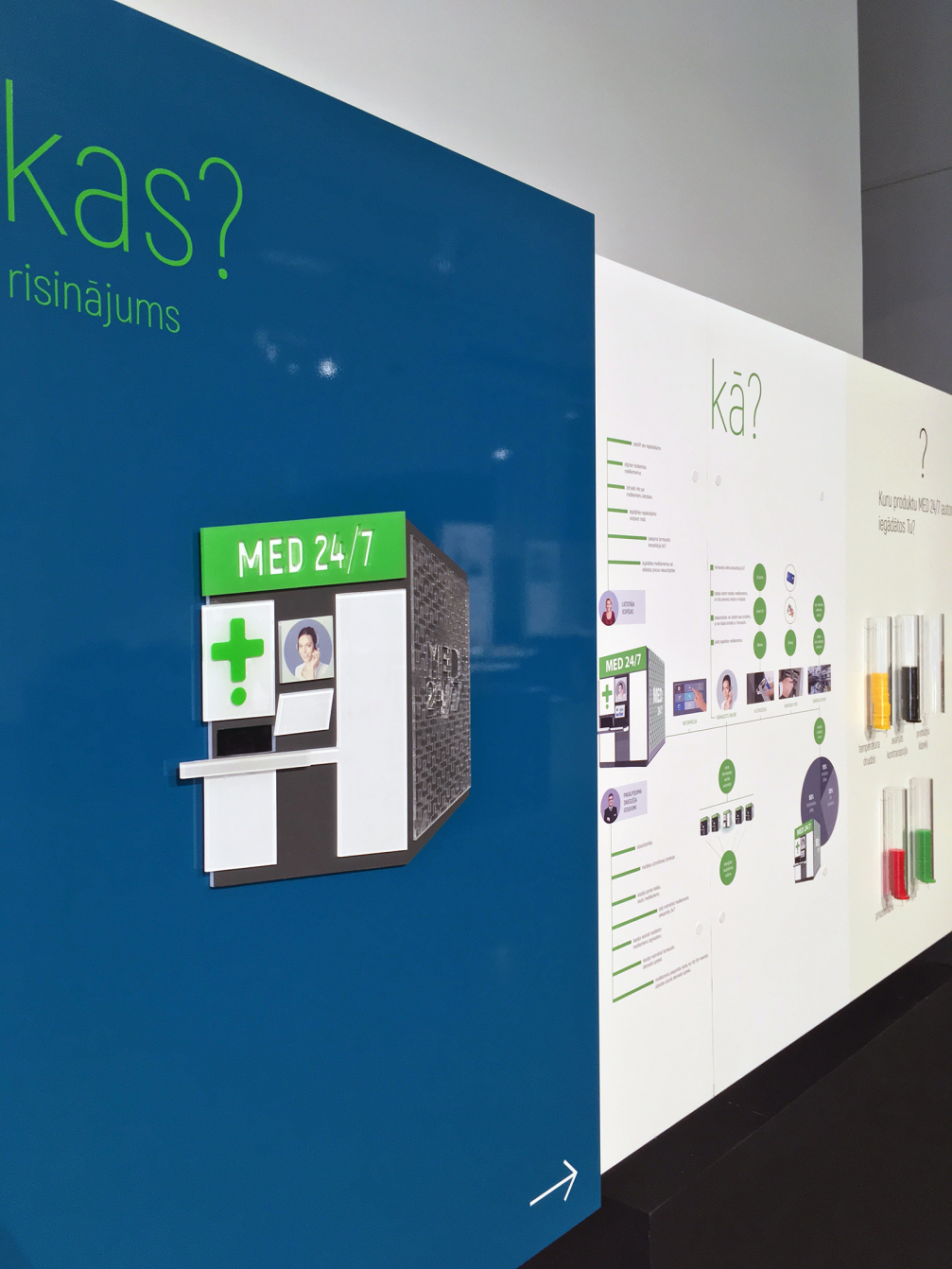
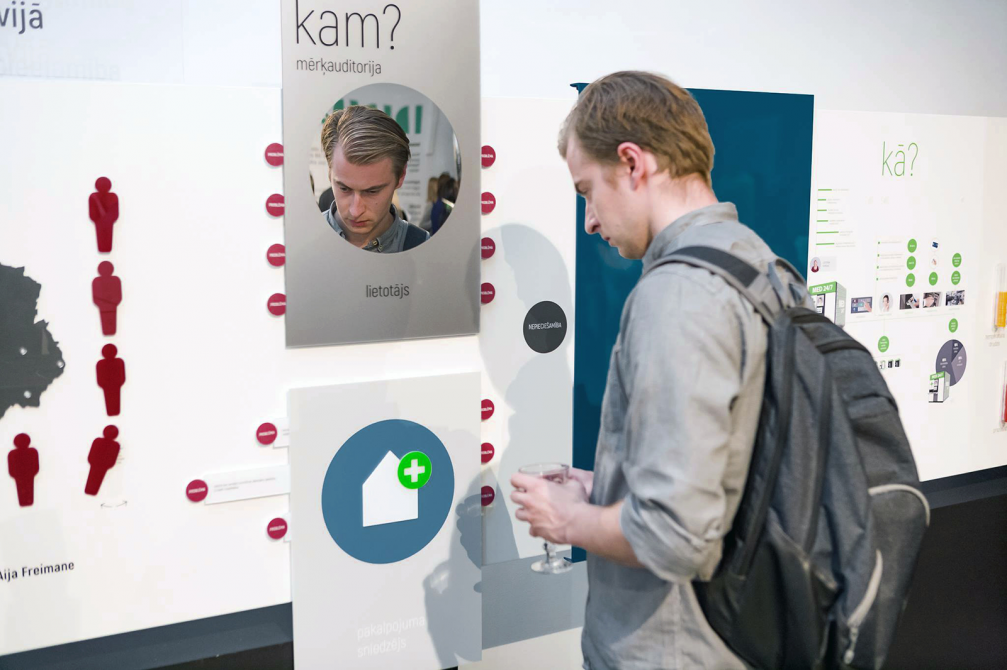
Project «MED 24/7» can be viewed in LMA until 8 July, but the author underlines that the material displayed in the exhibition is far from being the end result of the project. Currently, only the research part of the project is completed, and the concept of the service system is developed, but it is only one third of everything planned. The project development will continue outside of the Academy, and now the project author actively researches prospects of technology development, explores examples of similar projects elsewhere, and plans to involve in the implementation process both international and national experts.
The visual appearance of the project will be addressed in the final stages of the project, but Līva has already consulted «Omniva» company representatives about the fitting of the equipment in the urban environment, and the binding municipal regulations. To ensure an easy medicine refill, it is planned that «MED 24/7» machines will be located close to pharmacies or in sparsely populated regions, in village and town centres. Along with the design process, the author actively deals with the financing options of the project. Negotiations on cooperation with pharmacy networks are underway, some private investors have been approached, and, if needed, the author is ready to develop the idea within a new company.
The supervisor of Bachelor work by Līva Drīliņa is Dr.art. Aija Freimane.
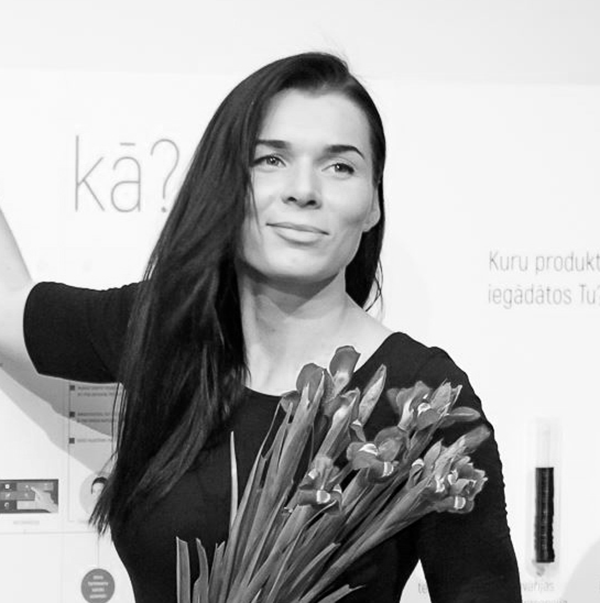

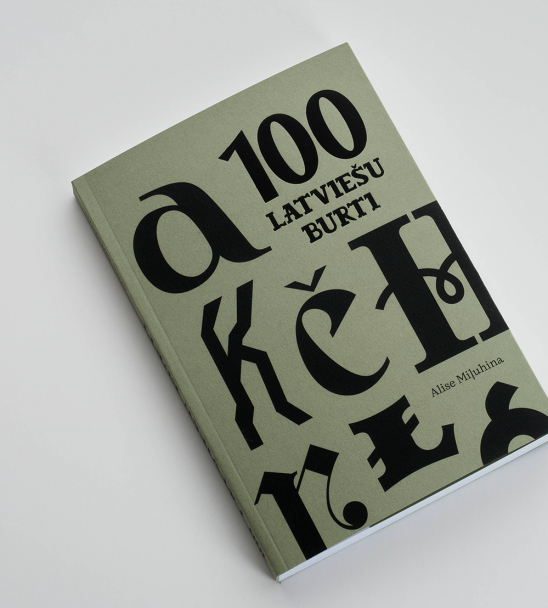
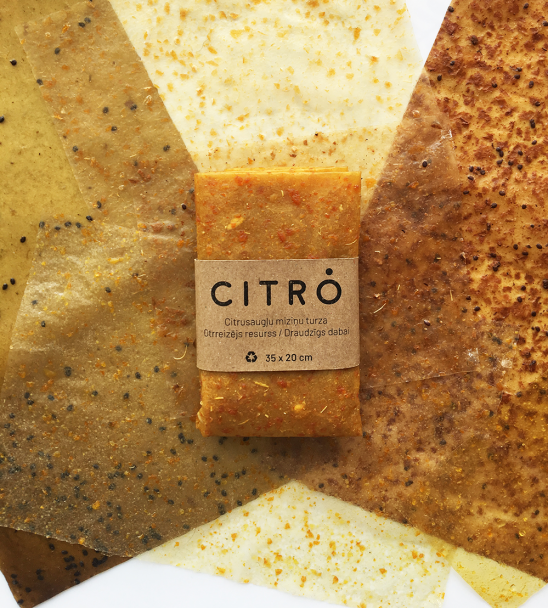
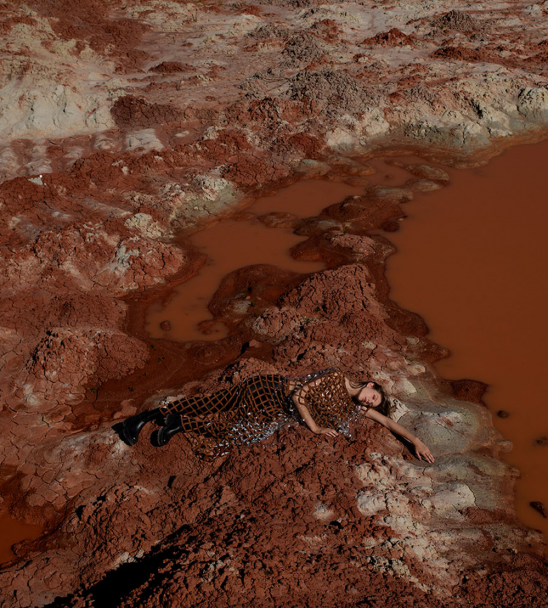
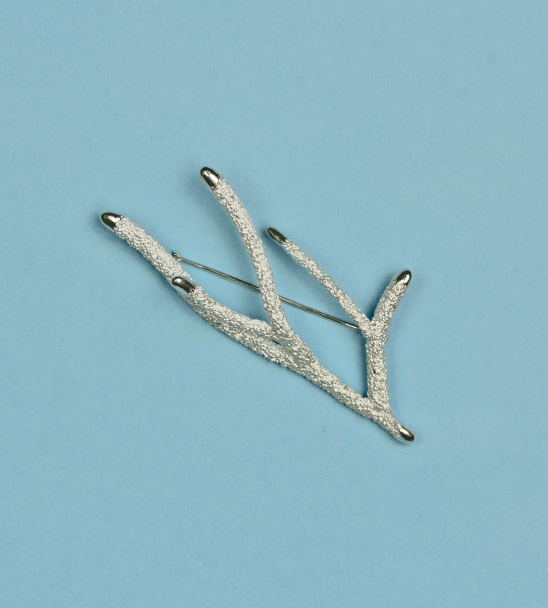
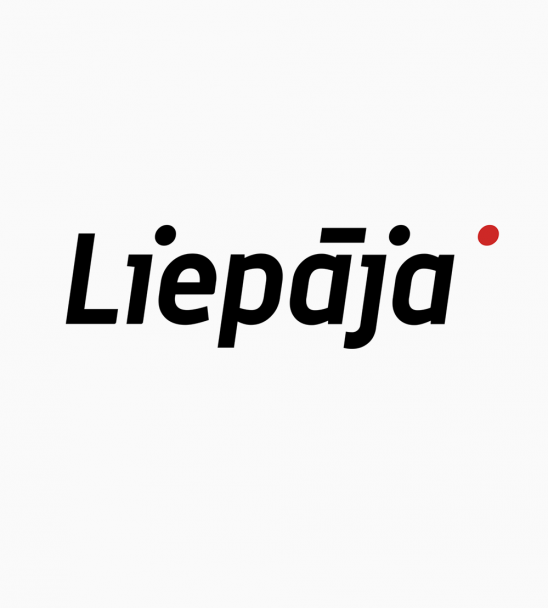

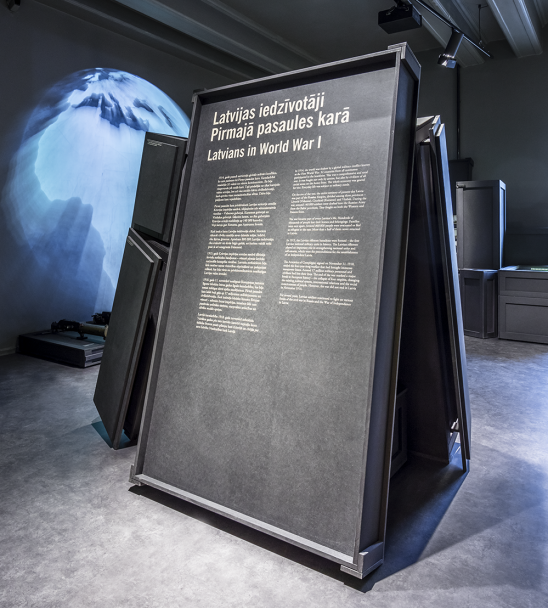
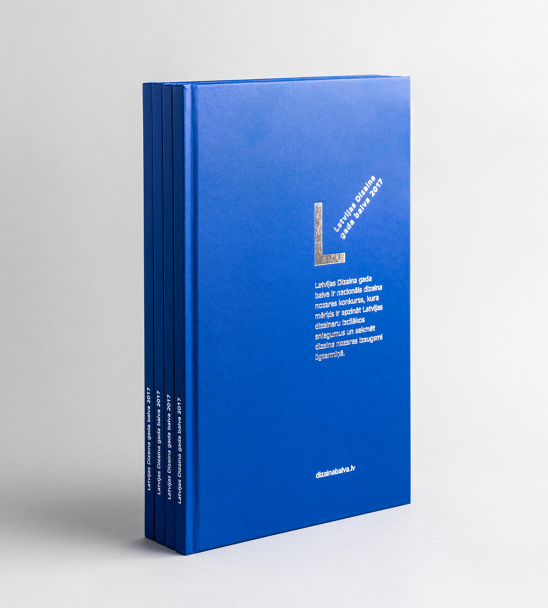
Viedokļi